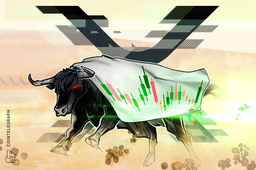Explore the Top Crypto Exchanges to Buy Crypto & Bitcoin with Confidence
The world of cryptocurrency continues to expand rapidly, and having access to reliable, secure, and easy-to-use platforms is more important than ever. Whether you’re just beginning your digital asset journey or actively managing a growing portfolio, finding the top crypto exchanges is a key step in ensuring safe and effective trading.
A modern crypto exchange goes far beyond basic trading — offering features like fiat onramps, mobile apps, staking, derivatives, and real-time market analytics. The exchanges featured in our curated crypto exchanges list meet the highest standards in security, liquidity, transparency, and user experience.
How to Choose the Best Crypto Exchanges for Your Needs
Not all trading platforms are created equal. The best crypto exchanges cater to users with different experience levels, financial goals, and regional preferences. Some offer zero-fee trading, while others specialize in advanced tools for professionals.
Here’s what to look for when evaluating a Bitcoin exchange or multi-asset crypto platform:
- Regulatory compliance and licensing in your region
- Support for fiat deposits and withdrawals (USD, EUR, GBP, etc.)
- Variety of cryptocurrencies, including BTC, ETH, stablecoins, and altcoins
- Mobile accessibility and user-friendly interface
- Transparent fee structures
- Cold wallet storage and two-factor authentication for security
Using a verified and trusted exchange ensures you can buy crypto & bitcoin safely and efficiently, while also reducing exposure to fraud or technical risks.
Where to Buy Crypto & Bitcoin: Global Access with Local Support
One of the biggest advantages of digital assets is their global nature — and today’s crypto exchanges support users from nearly every part of the world. Whether you’re in North America, Europe, Asia, or Africa, you can buy crypto & bitcoin in your local currency using familiar payment methods like bank transfers, credit cards, or digital wallets.
Major platforms often provide multilingual support, 24/7 customer service, and educational tools to help you navigate the evolving crypto landscape with confidence.
Some of the top platforms also offer recurring purchases, automated trading bots, and portfolio insights — allowing users to optimize their strategies and grow their holdings over time.
How to Sell Crypto & Bitcoin Easily and Securely
Selling your digital assets is just as important as buying them. Whether you’re taking profits, rebalancing your portfolio, or converting to fiat, a quality exchange should allow you to sell crypto & bitcoin quickly, securely, and at competitive rates.
Most reputable platforms offer:
- Instant or same-day fiat withdrawals
- Support for stablecoins and other trading pairs
- Minimal slippage and low withdrawal fees
- Built-in tax tracking and trade history downloads
Selling through a regulated crypto exchange also helps ensure compliance with local financial laws and simplifies tax reporting obligations.
























































